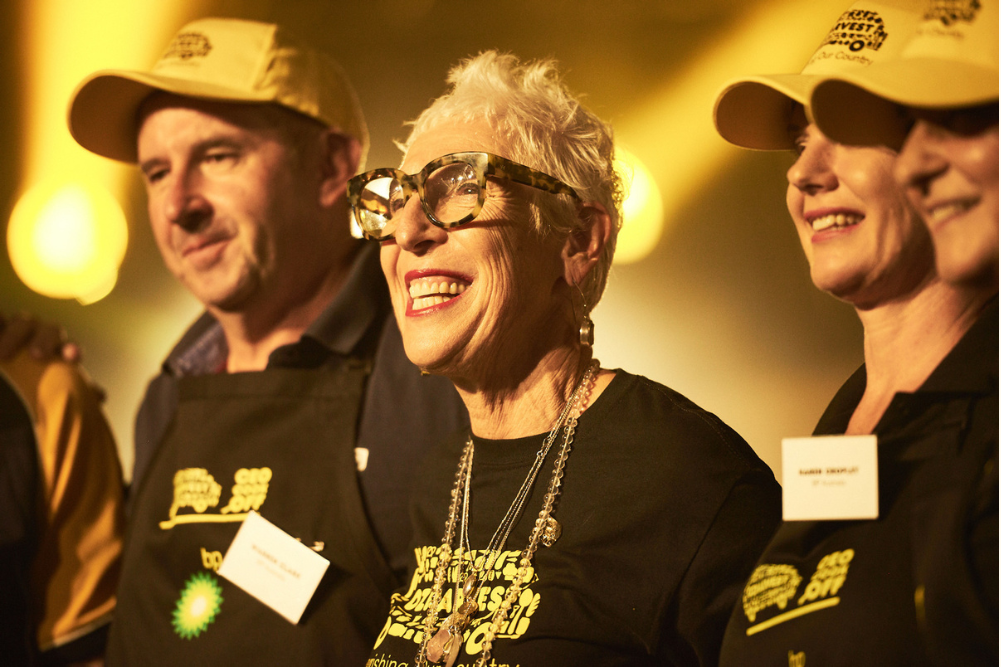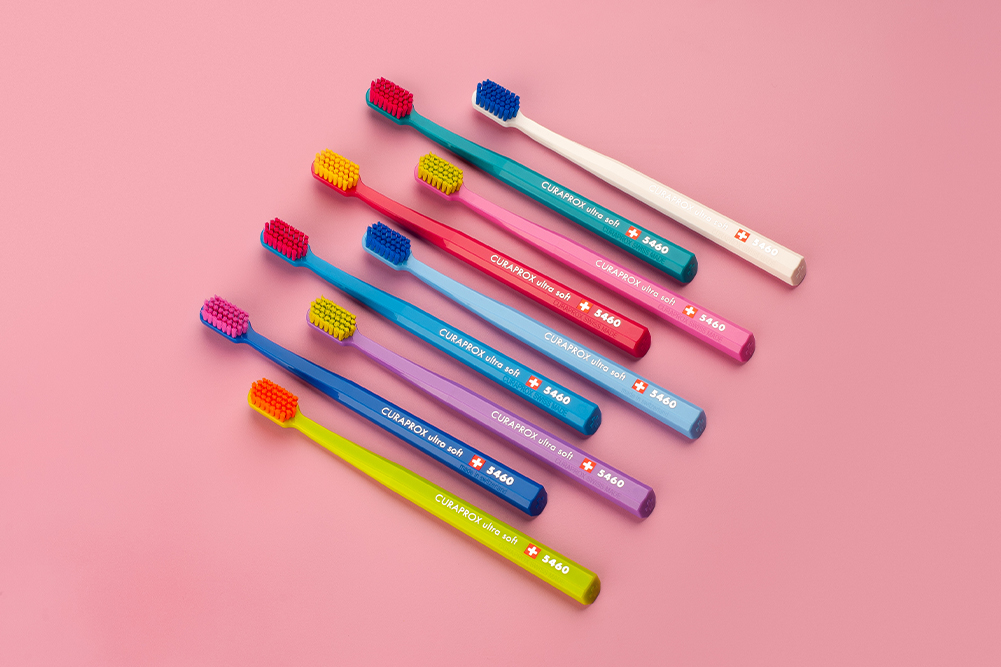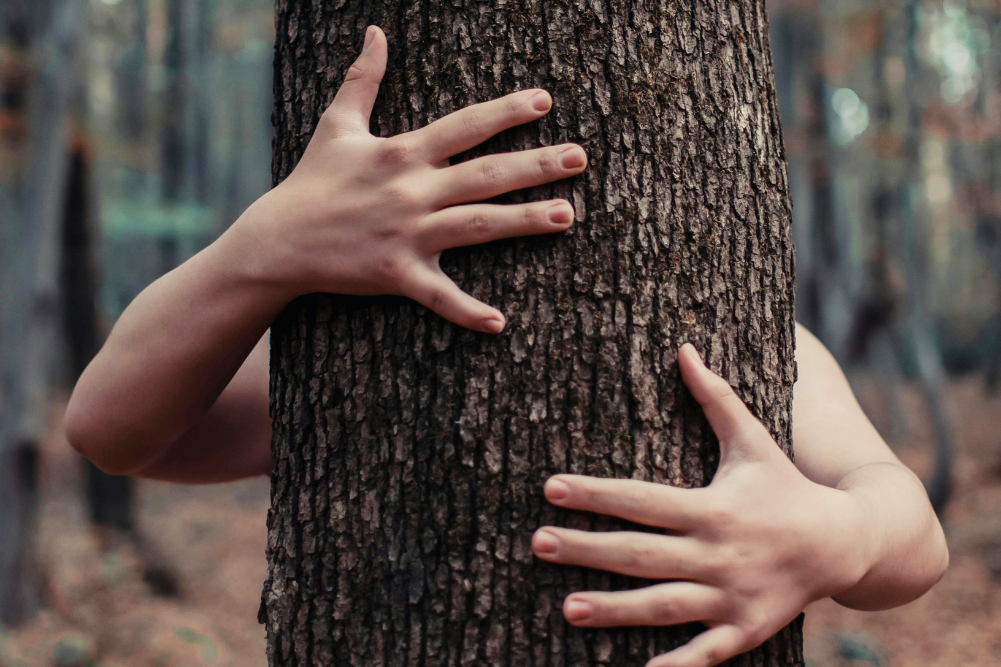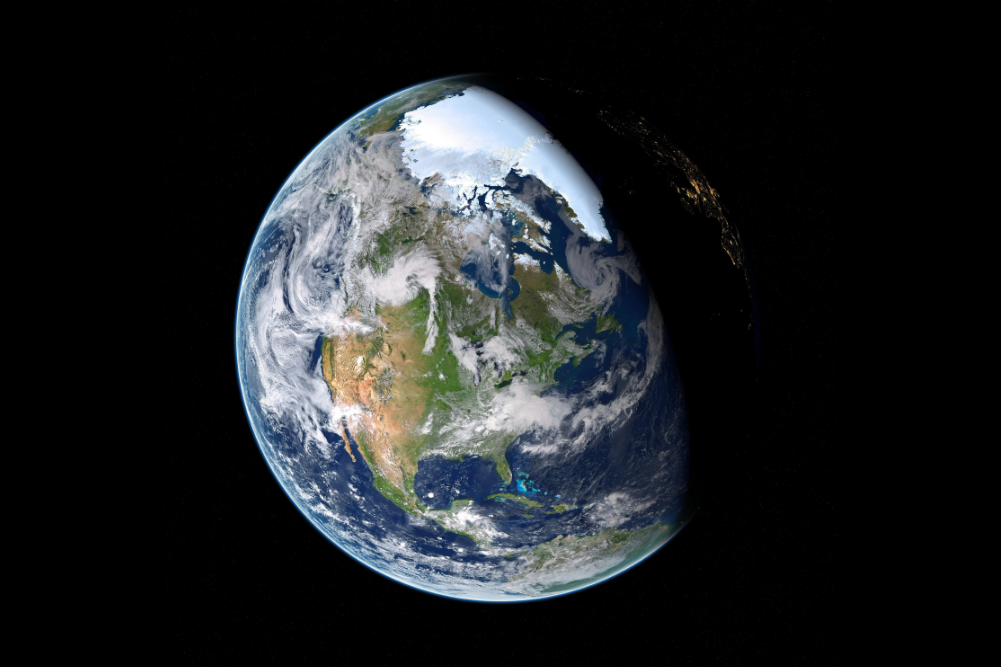Waste not, feed many
Discover how OzHarvest food rescue is transforming lives by reducing food waste, feeding vulnerable communities, and fighting hunger across Australia.
“Food is way more than the nutritional value,” says Ronni Kahn AO. “It’s about sharing, it’s about caring and it’s about elevating the spirit and making people feel comfortable and wanted.”
It’s been a long journey for the food-waste activist and social entrepreneur to recognise this. “I was a picky eater,” Kahn says, recalling her childhood mealtimes. “I ate chops and chips… I never ate my vegetables!” Her mother was a skilled cook, but Kahn never appreciated what was on her plate at the time. She smiles from behind her square-rimmed glasses. “It’s something I regretted — a little late — but have made up for it.”
To say that Kahn has made up for it is an understatement. In 2004, she founded OzHarvest, a food rescue charity, rescuing quality food from going to landfill and delivering it to those most in need — a Robin Hood of food wastage. OzHarvest rescues quality surplus food from commercial businesses including supermarkets, airlines, restaurants and hotels and delivers them for free to charitable agencies including homeless shelters, women’s shelters and rehabilitation centres.
Kahn also started the world’s first free supermarket. There are now two OzHarvest Markets — one in Sydney and one in Adelaide. The shelves are stocked with surplus fresh produce and pantry staples rescued from commercial supermarkets and other food businesses, which “shoppers” can access for free.
Through her work, Kahn has also been influential in changing laws. Alongside a team of pro-bono lawyers, she lobbied state governments to amend legislation to allow potential food donors to give their surplus food to charity without fear of liability. They were successful.
At 72 years old, Kahn is also a leading voice in both the national and global dialogue on food waste, and has received endless accolades for her work, including receiving the 2010 Australia’s Local Hero Award and, more recently, the Officer of the Order of Australia (AO) in 2019.
Seedlings of activism
Kahn was born in South Africa in the 1950s and grew up in Johannesburg. While she was too young to understand the full extent of the political landscape in the country at that time, she feels that the injustices she witnessed back then may have laid the foundations for her passion for social activism.
“Being brought up in South Africa during the apartheid era meant that I physically was seeing people who needed food, all day, every day. But I was little, and I didn’t really compute [the magnitude of the issue],” she recalls. While starting a charity wasn’t something that ever crossed her mind at that age, Kahn became increasingly aware of social inequality and privilege.
In her university years, she moved to Israel on a study scholarship and it was here that she got married and had her two sons. She spent a decade living on a kibbutz, a communal settlement where more than 300 people lived, worked and shared food and farmland together. Seeing how much hard work and resources went into creating food was also an eye-opener for Kahn and laid the foundations for her later passion in tackling food wastage.
Seeking a better life, Kahn and her family emigrated to Australia where she started her own business as an event planner in Sydney. It was during these events that the seedling of Kahn’s passion to prevent food waste really started to blossom.
A superhero in stilettos
After each event, Kahn was horrified at how much quality food was thrown out. After one particular corporate event, where food for around 1000 people was mostly untouched, she decided to do something about it.
“I had wonderful stalls of beers and kegs of wine, and people just went straight for the drinks and didn’t touch the food. There were thousands of kilos of food, and it just was unconscionable,” says Kahn, recalling that day. “It had never occurred to me before, but on that day, I just said, ‘I am not throwing away this food,’ and that moment fundamentally changed my life.”
Kahn boxed up the food and drove it to the nearest shelter. Still wearing the stilettos that she’d been working in all day, Kahn trotted up to the door, arms aching under boxes overflowing with food and asked if she could hand it over. The shelter gratefully accepted.
But, at that time, it wasn’t so much a desire to solve hunger that motivated her. She simply saw a problem and wanted to fi nd a solution. That moment inspired Kahn to set up OzHarvest, a charitable organisation to help solve the issue of food waste — to rescue discarded quality food from a network of more than 2000 commercial food donors and redirect it to those in need.
Since that day, OzHarvest has delivered more than 280 million meals and prevented around 70,000 tonnes of edible food from being sent to landfill. Not only does this feed people in need, but their eff orts are helping to tackle the harmful impact of food wastage on the environment. According to the UNEP Food Waste Index Report 2021, up to 10 per cent of global greenhouse gases are associated with food that is produced but not consumed.
And for the charities and shelters that receive deliveries from OzHarvest, the impact goes beyond just putting nourishing foods into hungry bellies.
Funds that would have been allocated to ever-increasing food bills can now be redirected to community programs focusing on things such as education or rehabilitation. “Some [shelters] have told us that we’ve saved them around $100,000 a year, which means they can use that for other programs,” says Kahn.
Today, OzHarvest employs almost 400 staff and has around 3500 volunteers, in Australia alone. The business model has been replicated overseas in New Zealand, the UK, South Africa, Vietnam and Japan.
There’s something fishy about the salmon
It was an incident with a salmon that sparked Kahn’s realisation that there was a knowledge gap in food education, and this was playing a big role in wastage. This was particularly true for people who had only been exposed to a limited selection of foods, or only processed and pre-packaged food from the supermarket like frozen fish fingers and chicken nuggets.
When the team on cooking show MasterChef had a whole salmon leftover, they called and asked if OzHarvest wanted to rescue it. Knowing good-quality protein was hard to come by, Kahn’s team gratefully collected it and took it to one of their charity agencies, where a chef cooked and served it. But a couple of days later, Kahn got a call to say that some people had refused to eat the salmon, thinking it was off simply because it was pink.
“They’d never seen a pink fish!” says Kahn. “A lot of charities, all they could afford before us, often, was white bread, jam, bangers and mash, and then we started bringing olive bread, wholewheat bread, artisanal breads.” Being exposed to and educated about different types of food was important to change attitudes and behaviours. “It’s about a whole shift and change in the mindset of people who’ve never eaten a broad spectrum of food.”
This opened up Kahn’s mind to not just feeding people but giving them the knowledge and skills to feed themselves. “We’d started feeding people, and I knew that this was making a huge difference, but I kept thinking, ‘How are we going to shift and change our society to value food more, to think about quality in food, to think about the value of food, because we’ve lost the value of food?” says Kahn.
OzHarvest now runs numerous education programs for children and vulnerable people. One such program is Food Education and Sustainability Training (FEAST), a free 10-week education program for primary and high school students. FEAST, which has been run in more than 1000 schools, teaches simple cooking skills to school students and educates them on the impacts of food waste and how to make positive food choices.
“When we started that program, there were times when people didn’t know where a potato came from,” says Kahn. “They thought it came from a bag on a shelf in a supermarket. It’s all about how food is grown and what it takes to grow food.”
Dishing up dignity
While rescuing food and increasing food literacy is important, Kahn says that the heart of what they do at OzHarvest is really about community, confidence and building a sense of self-worth.
In the OzHarvest Markets, Kahn and her team aim to restore dignity to those who can’t afford to shop in a traditional supermarket. This number isn’t small – according to the 2024 Foodbank Hunger Report, 3.4 million households in Australia ran out of food in the last year.
Each week, around 2400 people use the Sydney service, a number that has been increasing with the rising cost of living. When a man came into the OzHarvest Market, volunteers noticed that he had an injury, a large gash that had been left to fester. When they gently questioned this, he said he refused to go to a doctor.
Through the strong community that OzHarvest had built, they found a doctor within the community, offering a less-intimidating pathway for him to be examined. The doctor checked his injury and insisted he needed immediate medical care.
“We got him rushed to hospital and he came back five weeks later,” recalls Kahn. “Just this week, he came back and said, ‘You saved my life, because if I hadn’t come and if you hadn’t cared for me, the doctors told me that I wouldn’t have survived the septicaemia and the poison.”
On another occasion, Kahn was in a coffee shop in Sydney when the waiter, a young man with an accent, sat down across from her. Kahn relayed the story on the Mamamia’s No Filter podcast, “His eyes filled and his mouth smiled and he said, ‘You’re Ronni, aren’t you? You’re OzHarvest’… I’m an international student.
During COVID, I lost my job, no university, couldn’t get back to my home, the [Australian] Government didn’t give us any support. But you fed me, so I wanted to say thank you.”
The order of the teaspoon
Among the many jangling pieces of jewellery that adorn Kahn, most notably the layers of brightly coloured beaded necklaces, she finds and holds up a teaspoon hanging on a chain around her neck. But this silverware-themed jewellery is not for making a brew on the go, it’s symbolic.
Based on a quote by the late Israeli writer Amos Oz, The Order of the Teaspoon is a mantra that Kahn lives by. Oz explained that in moments of conflagration, Doer & Thinker • Ronni Kahn AO 43 a disastrous fi re, we as humans have three ways we can behave. Kahn recites, “Number one, we can look at that fi re and run away as fast as we can and leave those that cannot run to burn. Number two, we can write an angry letter to the newspaper demanding that the perpetrators get punished. Number three, we can run and fi nd a bucket. If we cannot find a bucket, find a jug, and if we cannot fi nd a jug, fi nd a teaspoon. And I know that a teaspoon is tiny, and that fi re is huge, but there are millions of us, and if we all use our teaspoon, we can put out that fi re. The teaspoon is a symbol of random acts of kindness and goodness.” Kahn smiles as she runs the spoon between her fingers. “I invite everybody to join the order of the teaspoon.”
Your “teaspoon” could be simply becoming more mindful of not wasting food at home. In 2022, OzHarvest launched their Use it Up campaign, encouraging households to segregate a shelf of the pantry or fridge to food that needs to be used up first. Research on the impact of the study, done in collaboration with Monash University, found that households participating in the campaign had lowered their household food waste by up to 40 per cent.
Though OzHarvest keeps her busy, when Kahn is not working, she loves to swim in the ocean, do Pilates and cook — and, yes, she now eats her vegetables! But spending time with her grandchildren is a favourite way to pass the time, and Kahn’s work has been an inspiration to them and their generation. “My grandson, who turned eight, asked me to come and tell the [teaspoon] story in his class,” she says. “He collected 20 teaspoons and wrote the story out for each of them and gave all of those kids a teaspoon.” When Kahn saw the teacher and parents again, they told her how committed and enthusiastic the children were about using their “teaspoon” to do good in the world.
End world hunger
While Kahn is now in her 70s, she doesn’t plan on stopping anytime soon. “Personally, my new goal for the next 10, 20 or 30 years is to end hunger,” she says. “We’ve got 10 million Australians who need food. It’s insane. It’s unconscionable.”
But like her dream of starting OzHarvest, Kahn knows that she can’t achieve her goal alone and plans to collaborate with experts from around the world to tackle the issue. “What I’m going to do is pull together and get the right contributors, from government to universities to researchers to the corporate world.
We are going to have to rethink and redesign our thinking around [the idea that] we created hunger. How are we going to un-do the issue of hunger? So that is the focus for me.”
And while world hunger is a huge problem to take on, Kahn thinks that many of us can help change the world in a small way, simply by doing what she did on that first visit to a homeless shelter back in 2004 — identifying a problem and finding a solution.
“Every single day in our lives, we see problems in the things that are around us, whether it’s lighting in streets, whether it’s refuge or refuse or whether it’s treating people better,” says Kahn. “When we see a problem, we don’t always have to say, ‘Why doesn’t somebody fi x this?’ The ‘somebody’ could be you.”








